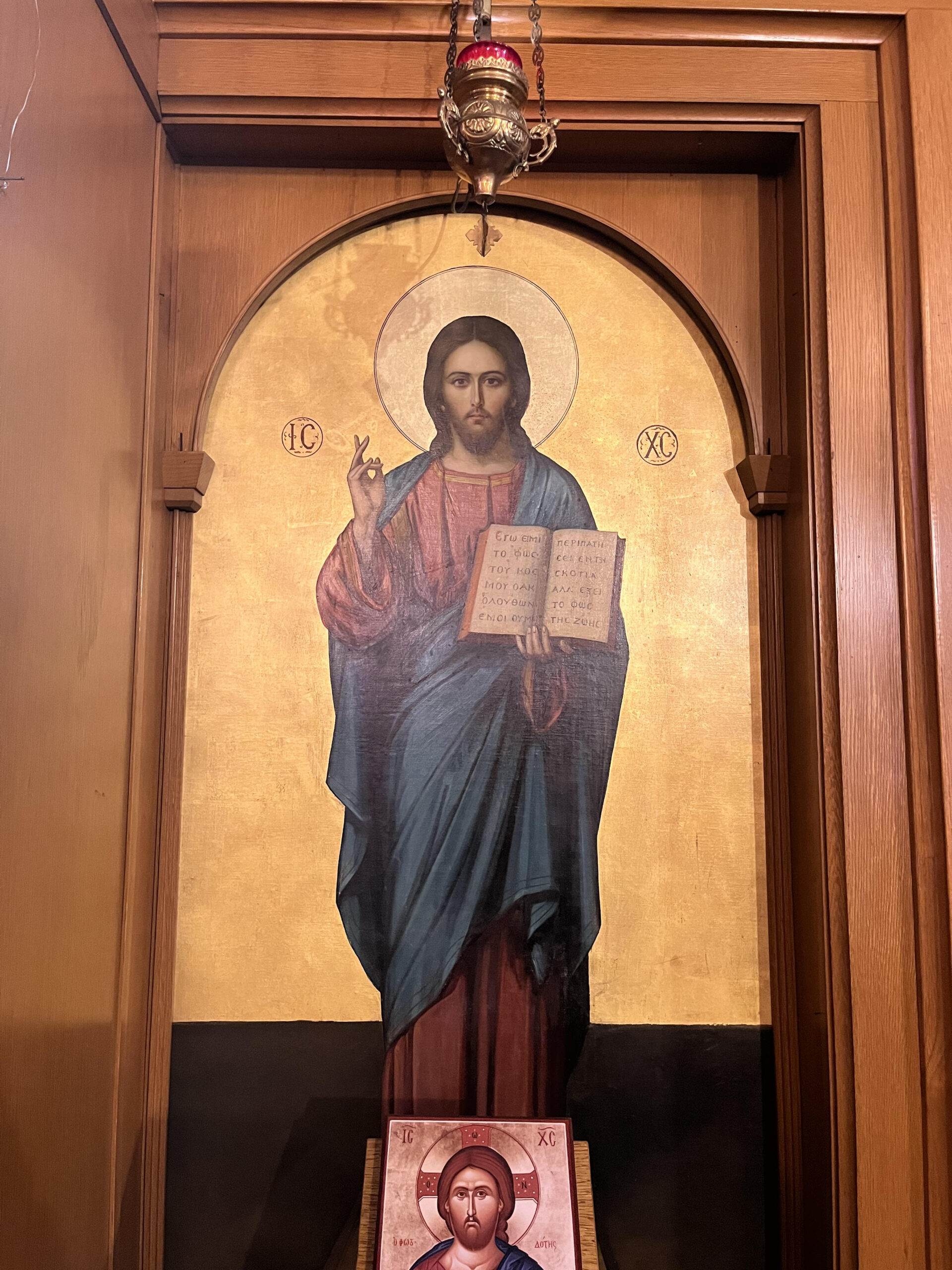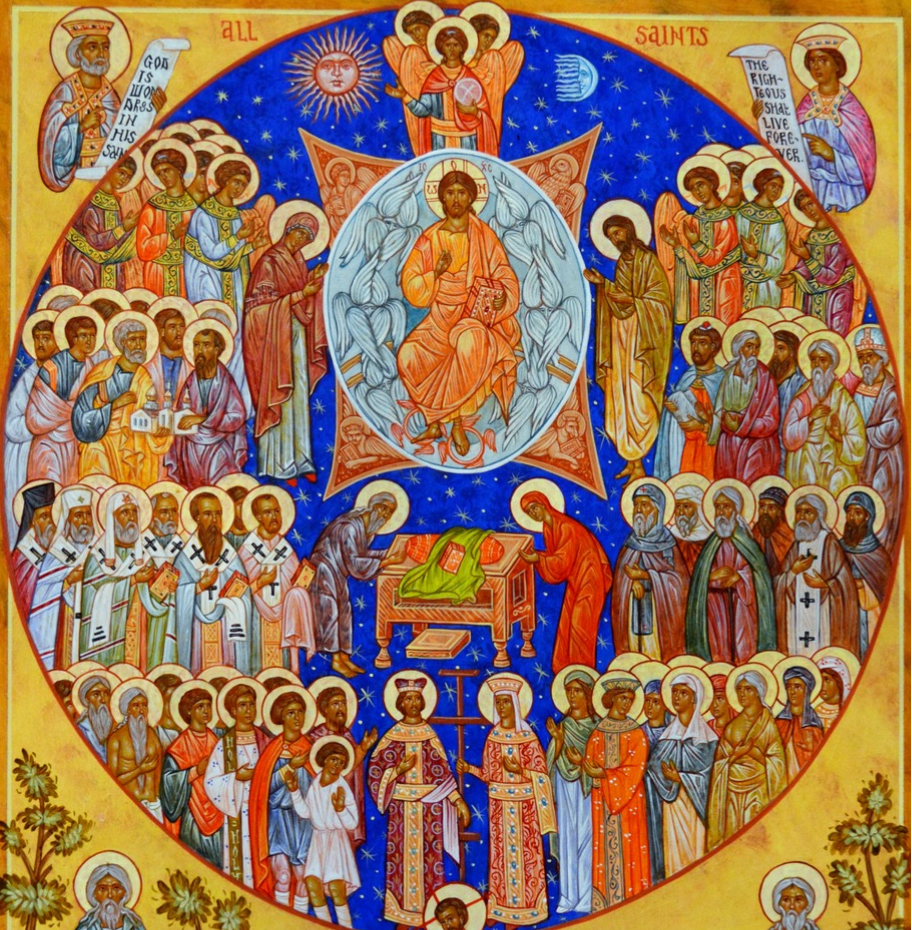And they were on the road, going up to Jerusalem, and Jesus was walking ahead of them; and they were amazed, and those who followed were afraid. And taking the twelve again, He began to tell them what was to happen to Him, saying, “Behold, we are going up to Jerusalem; and the Son of man will be delivered to the chief priests and the scribes, and they will condemn Him to death, and deliver Him to the Gentiles; and they will mock Him, and spit upon Him, and scourge Him, and kill Him; and after three days He will rise.” And James and John, the sons of Zebedee, came forward to Him, and said to Him, “Teacher, we want You to do for us whatever we ask of You.” And He said to them, “What do you want Me to do for you?” And they said to Him, “Grant us to sit, one at Your right hand and one at Your left, in Your glory.” But Jesus said to them, “You do not know what you are asking. Are you able to drink the cup that I drink, or to be baptized with the baptism with which I am baptized?” And they said to Him, “We are able.” And Jesus said to them, “The cup that I drink you will drink; and with the baptism with which I am baptized, you will be baptized; but to sit at My right hand or at My left is not Mine to grant, but it is for those for whom it has been prepared.” And when the ten heard it, they began to be indignant at James and John. And Jesus called them to Him and said to them, “You know that those who are supposed to rule over the Gentiles lord it over them, and their great men exercise authority over them. But it shall not be so among you; but whoever would be great among you must be your servant, and whoever would be first among you must be slave of all. For the Son of man also came not to be served but to serve, and to give His life as a ransom for many.”
Mark 10: 32-45 (Gospel on Fifth Sunday of Lent)
As we mark the fifth Sunday of Great Lent, Holy Week is less than a week away. The narrative of Christ’s Passion is only days away from the beginning. In this morning’s Gospel, Jesus again narrows in on what is coming, telling His Disciples that they are making their way to Jerusalem, where “the Son of man will be delivered to the chief priests and the scribes, and they will condemn Him to death, and deliver Him to the Gentiles; and they will mock Him, and spit upon Him and scourge Him and kill Him; and after three days He will rise.” (Mark 10: 33-34)
We know that Jesus had twelve disciples. And of these twelve, there were three that were closest to Him—Peter, James, and John. James and John were brothers, the son of Zebedee. They took Jesus aside, and a scene from a corporate boardroom or reality television show ensued. They tried to make a private deal with Him, that they would be the ones to sit closest to Him in His glory. They even asked for one of them to sit on the right hand and one on the left hand.
We learn in Matthew 25: 31-46, that the ones who sit at the Lord’s left hand are the “goats”. They are the ones who are condemned to eternal punishment. In asking to sit at the Lord’s left hand, as Jesus said in Mark 10:38 “you do not know what you are asking.” When I think of the Lord’s Kingdom, I hope and pray that I am admitted into the Kingdom, any seat any place will suffice.
Of course, when the other disciples heard that James and John had gone to Jesus privately in the hopes of garnering His favor and some special place in heaven along with it, they were “indignant at James and John.” (10:41) Jesus, knowing that there was dissension now among His disciples, gave them a lesson in leadership. He told them “You know that those who are supposed to rule over the Gentiles lord it over them, and their great men exercise authority over them. But it shall not be so among you; but whoever would be great among you must be your servant, and whoever would be first among you must be the slave of all.” (10: 42-44)
We spend a lot of our lives trying to climb the ladder to success, whether that is economic success, business success, or material success. Often on this ladder, we climb over people, sometimes we even push people down or off. Sometimes we feel that this is out of necessity, a sort of “kill or be killed” attitude. And then we try to reconcile this behavior with being a Christian. Jesus tells us that we are ultimately here to serve, not to be served. We can’t climb the ladder, so to speak, by trampling over everyone in our way.
There are simple, subtle ways, in which we can all serve one another. Letting someone in on the road is a good example. So is holding the door for someone, or letting someone go ahead of us getting out of an elevator. I fly occasionally in my job, and the way people behave in airports and on airplanes is appalling. Many fight to get ahead at the security counter instead of waiting in line. When the flight crew tells everyone to store their laptops for landing, people keep on typing away, as if the instruction was for everyone but them. It is hard to imagine these people serving when they cannot comply with simple instructions. It is as if we constantly “lord over people” our status, that somehow our salary or our fancy car entitles us to behave in ways that are closer to being served than to serving others.
Christ is the consummate servant. As He said in Mark 10:45, He “came not to be served, but to serve, and to give His life as a ransom for many.” Christ didn’t come here to bark orders to us. He did come to teach us how we should live. However, He didn’t teach only in words. He taught with deeds. He was willing to give His own life in order for us to be saved. He went beyond holding open a door or letting someone get ahead in traffic. He went beyond washing the feet of the disciples. He ate with the outcasts who needed a friend. He called people like Zacchaeus, who were scorned by society. And He died on the Cross for our benefit.
It’s hard to think of dying for other people when we can’t even let them turn ahead of us on the road. It’s hard to imagine dying for other people when we are trying to walk over them in the airport. It’s hard to conceive of dying for someone as we are stabbing them in the back in the corporate boardroom.
Christ called us to be servants. To serve Him and to serve one another. Can you imagine arguing with someone about who will go first at something? “You go first.” “No, you go first.” “I insist you go first.” This kind of thing doesn’t happen anymore. To serve is to take from ourselves and to give to someone else, expecting nothing in return. When we expect to receive something in return, that is an exchange, not a service. To truly serve means to remove any expectation of reward and to just give.
In all of our jobs, there is hopefully an element of service. Any job that pays a salary, even the priesthood, isn’t complete service, because there is something taken in return. However, even in our jobs that we get paid to do, there should be thoughts of service. Service with a smile. Service with promptness. Service with thoroughness. These things are missing even from the jobs we get paid to do. At work, work with a smile, be prompt and responsible, be thorough and be someone that can be counted on. And when not at work, look for opportunities to serve and to give without the expectation of reward.
While we likely will not be called upon to die for someone today, we will have the opportunity today, and every day, to serve someone, to lift someone up, to give the opportunity for someone to get ahead. And we will probably also have the opportunity today, and every day, to demand that someone serve us, to put someone down, and to jump ahead of someone else. The way we choose will say a lot about whether we are a servant of Christ and one another, or whether we are trying to be lord over others. There is only one Lord. We are His servants. And if we are His servants, we can’t make ourselves “lords” over others.
The Kingdom of God is not food and drink, but righteousness and ascetic practice and holiness; wherefore rich men will never enter it, but only those who place their treasures into the hands of the needy. This is what David the Prophet teaches when he says, “Righteous is the man, who is merciful day in and out, who delights in the Lord. He walks in the light, be will not stumble.” All of this was written for our edification, that, while fasting, we do acts of kindness; and the Lord will give us, instead of earthly gifts, the things of heaven. (Doxastikon, Matins, 5th Sunday of Lent, Trans. by Fr. Seraphim Dedes)
Look for opportunities to serve others today!

